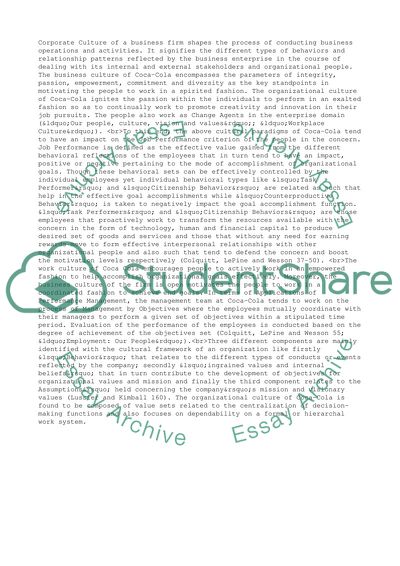Cite this document
(Coca-Cola Companys Culture Case Study Example | Topics and Well Written Essays - 2500 words, n.d.)
Coca-Cola Companys Culture Case Study Example | Topics and Well Written Essays - 2500 words. Retrieved from https://studentshare.org/management/1462363-coca-cola
Coca-Cola Companys Culture Case Study Example | Topics and Well Written Essays - 2500 words. Retrieved from https://studentshare.org/management/1462363-coca-cola
(Coca-Cola Companys Culture Case Study Example | Topics and Well Written Essays - 2500 Words)
Coca-Cola Companys Culture Case Study Example | Topics and Well Written Essays - 2500 Words. https://studentshare.org/management/1462363-coca-cola.
Coca-Cola Companys Culture Case Study Example | Topics and Well Written Essays - 2500 Words. https://studentshare.org/management/1462363-coca-cola.
“Coca-Cola Companys Culture Case Study Example | Topics and Well Written Essays - 2500 Words”, n.d. https://studentshare.org/management/1462363-coca-cola.


